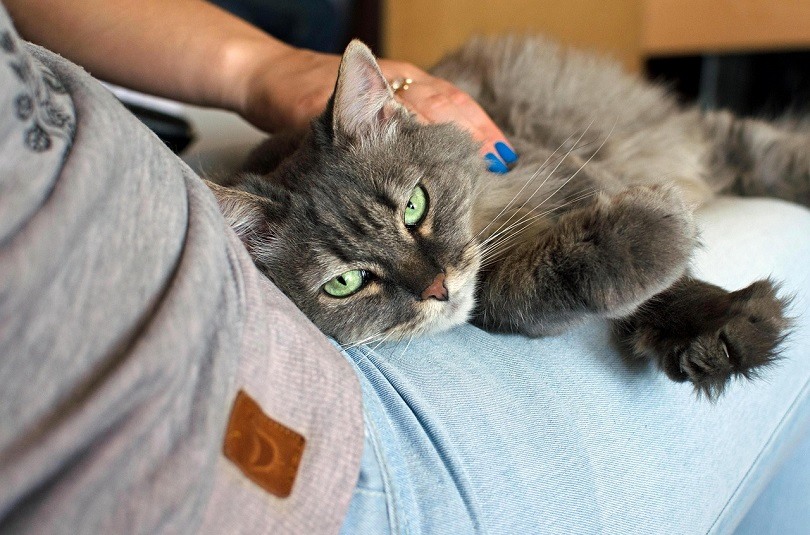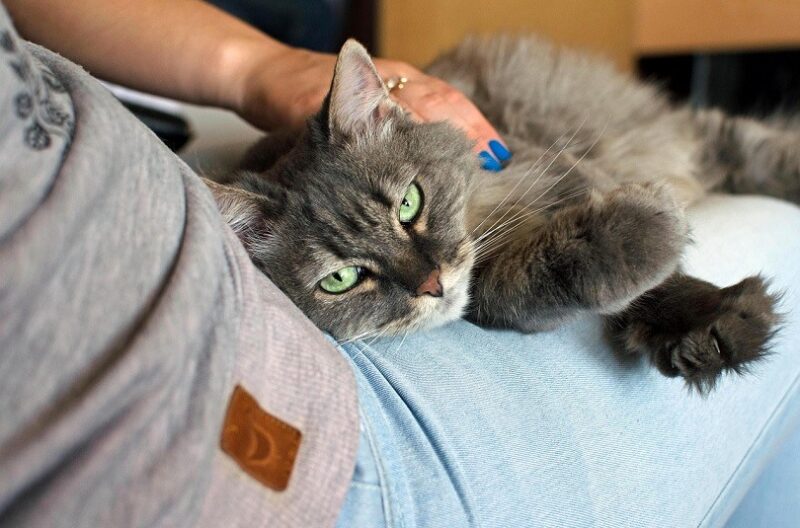As a cat parent, saying goodbye to your companion before departing for a weekend trip can be difficult. However, despite our cats often being aloof and independent, they miss us too, and there are a few signs that prove that your absence did not go unnoticed, even though some of them may be hard to decode.
In this article, we’ll discuss a few behaviors your cat may display that may indicate that you were missed while you were away. While some are pretty clear, others are more ambiguous and will require a deeper understanding of your cat’s body language, vocalizations, and behaviors.
Click to skip ahead:

Do Cats Miss Their Owners?
Most cats are known to be independent, antisocial, and aloof; however, they notice when you are not around. While cats do not need to have their humans as close as dogs generally do, they can still develop deep connections with their owners. Whether cats can miss their owners is debatable, but they still desire your attention and love.
Some cats are more sensitive and attached to their owners and are known to experience separation anxiety, which is a more serious issue than simply missing you. If you suspect your cat may be experiencing separation anxiety, you should consult your vet for the best solutions.
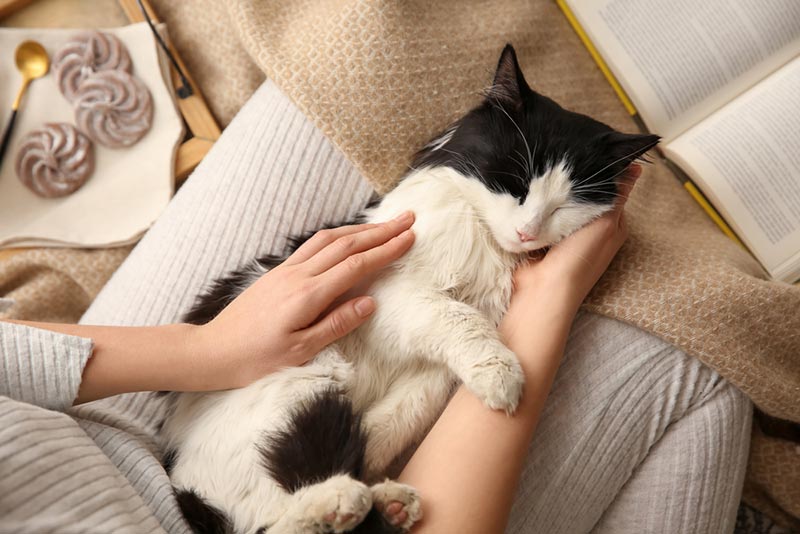

The 10 Signs Your Cat Missed You
1. Purring
Purring is one way for a cat to communicate, and purring on your arrival home may indicate that your cat is happy to be reunited with you again. When a cat is left alone for a longer period, the purring and the yearning for companionship may increase.
According to one study, cats behave differently when left alone for just 30 minutes as opposed to several hours. When reunited with their owners, the cats who had been left alone longer purred more.
2. Meowing and Crying
Meowing and crying can be typical indicators that your cat missed you. Your cat’s meow could be an effort to gain your attention if they have been feeling lonely. However, a cat’s meow can have various meanings, so it’s important to keep an eye on your cat once you have settled back home. If your cat doesn’t stop meowing after a few minutes, you should monitor their behavior to rule out pain or illness.
3. Seeking Affection
Your cat may show increased affection or follow you around looking for affection when they miss you. Increased affection can include head butting, rubbing against you, purring, and kneading. If your cat starts to follow you around and settles where you settle, they could be seeking more attention because you have been missed.
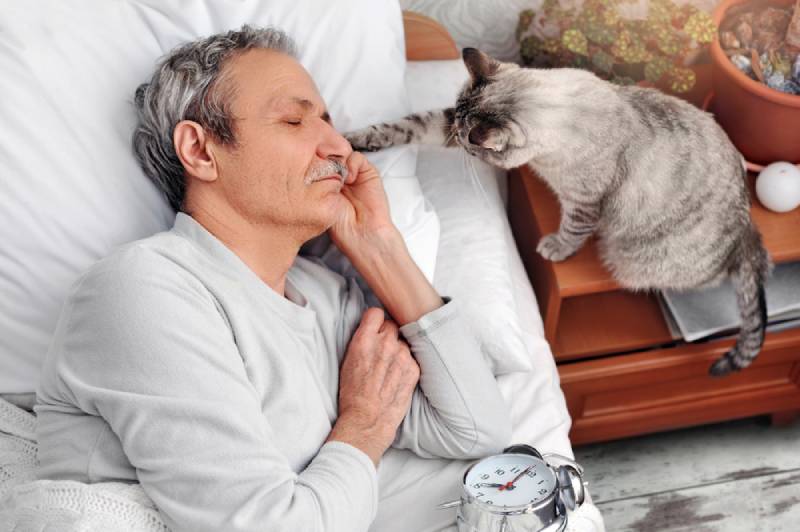
4. Marking Territory
Cats value their territory greatly, particularly their house, where they feel protected and safe. While you were away, your cat may have “marked their territory” by urinating in areas of your home. Trying to keep themselves safe by marking territory could indicate that you were definitely missed, even though it may not be the most appreciated way to show you!
Cats also mark their territory when they feel content by using glands on their chin, cheeks, and above their eyes. If your cat rubs up against you or your furniture, they could be marking their territory, indicating they are happy and content, which could be because their loving owner is finally home.
5. Bringing You Gifts
Cats are natural hunters who often return their prey to their owners as a “gift.” Even if it can make you queasy and may seem like an act of animosity, it is a genuine expression of love and pride. They may also bring you their favorite toy as a “gift,” which indicates that they trust you with something important to them. A dead mouse or a beloved toy is a perfect way for your cat to say, “I missed you.”
6. Sleeping in Your Spot
Your cat can easily recognize you just from your scent, so your cat may look for solace among your clothing or in your sleeping spot, as it gives them a chance to relax in the company of their owner’s familiar scent. If your cat is sleeping in your spot, it can be a sign that your cat missed you and wished you were there. Even if your cat decides to sleep close to you but just out of reach, they are still showing their love and trust.

7. Stress or Agitation
Some cats, despite their independence and lack of “neediness,” get stressed and agitated when they are separated from their owner for an extended period. This implies that you play a significant role in your cat’s social environment, and they may have missed you while you were gone.
You may notice a change in your cat’s demeanor when you return home. Your cat may be acting more agitated or even stressed, which could indicate a more profound feeling, such as separation anxiety.
8. Destructive Behavior
By nature, cats are clever, inquisitive, and athletic creatures who need a lot of mental and physical stimulation to keep them entertained. If your cat is bored or stressed out while you are gone, they may develop destructive behaviors such as clawing at the furniture or getting into things. This bad behavior can be a cry for attention, indicating that your cat missed you.
9. Excessive Grooming
Cats groom themselves to maintain cleanliness, but they may overgroom themselves in times of stress, such as when they miss their owners. Cats also groom one another as a sign of affection, and when trust is established, this behavior will also be extended to their owners. It may be unusual when your cat decides to lick your hands or face, but consider it a kind gesture from your cat who is grateful for you coming home.
However, overgrooming can result in hair loss and is often a sign of separation anxiety as it serves as a stress relief for them. It could also be due to allergies or skin conditions, so you should monitor your pet closely if you suspect they are overgrooming and consider consulting your veterinarian to rule out any underlying medical issues.
10. Illness
Some cats lose their appetite or experience vomiting or diarrhea when their owners are away. If your cat is sick with separation anxiety, it may be accompanied by other signs such as hiding, excessive vocalization, over-grooming, restlessness, and urinating outside their litter box. Since the signs of separation anxiety could potentially point to other health issues, a consultation with your veterinarian is essential to rule out any other medical concerns or disorders.
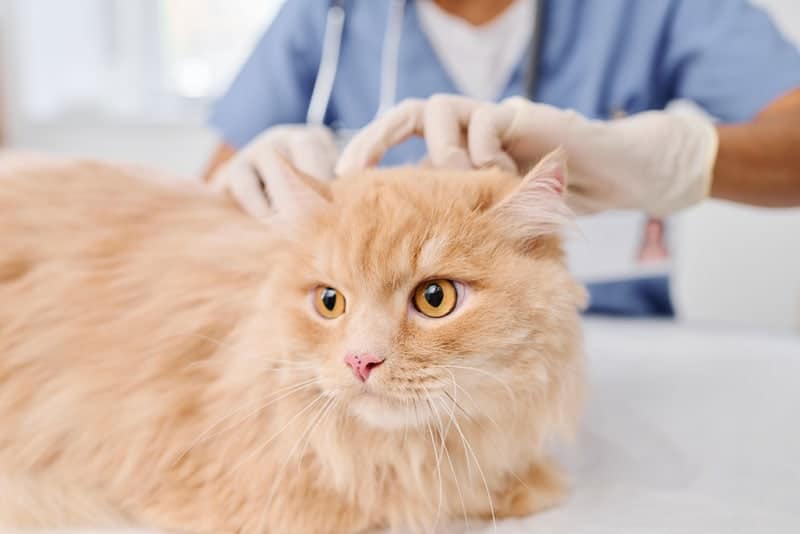

How to Help Your Cat While You Are Away
If you are concerned about your cat missing you while you are away or about the potential for your cat to develop separation anxiety, here are a few ways to help your cat feel safe, comfortable, and entertained.
Hire a Cat Sitter
Consider getting a professional cat sitter or house sitter to stay in your home while you are away so that your cat is not alone, and their routine is not affected. Get them to stop by a few days before to meet and interact with your cat and show them your schedule.
If you cannot find someone to stay for the whole duration while you are away, ask a friend or neighbor to pop in once or twice a day to check in, play with your kitty, and ensure their food, water bowl, and litter box are filled up and clean.
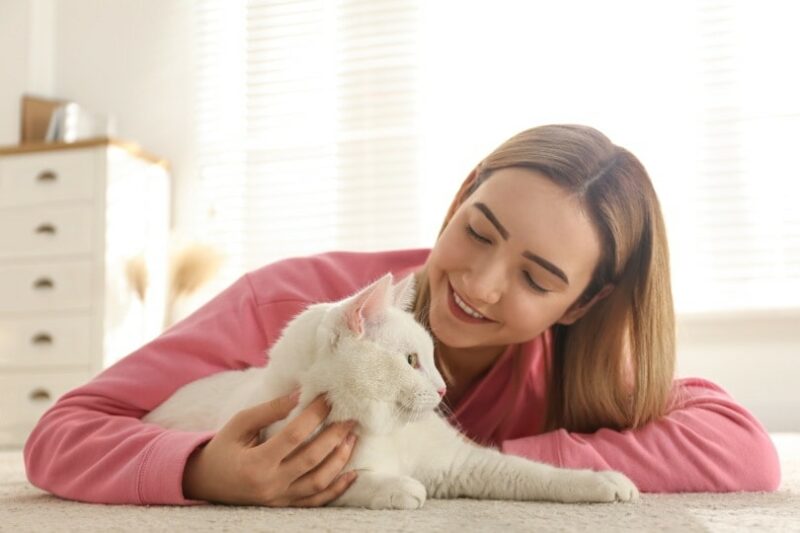
Provide Toys and Entertainment
Leave plenty of interactive toys to keep your cat busy. These can include your cat’s favorite toys, puzzle feeders, and scratching posts. Position the scratching post near a window so your cat can enjoy the activities outside. You can also install a cat tree where your cat can climb, scratch, and sleep to help them feel safe and comfortable.
Keep Things Familiar
Try to stick to your cat’s routine as much as you can. This provides predictability, which helps your cat feel safe. Before you leave, make sure your cat’s food and water bowls are filled, and consider leaving the radio or TV on for some familiar noise.

Conclusion
It’s nice to know that our cats may miss us while we are gone and that their aloof and independent nature doesn’t mean they don’t care. Your cat may show signs that it missed you with extra affection, vocalizations, and gifts. However, if your cat shows more concerning signs, such as excessive grooming, destructive behaviors, or illness, it could indicate that they’re more attached than you may have realized and may battle with separation anxiety.
Featured Image Credit: zavalnia, Pixabay

